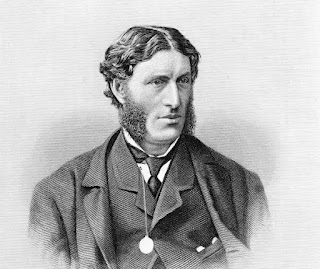Discuss “The Scholar Gipsy” as a Criticism of Life
Matthew Arnold is one of the representative poets of Victorian poetry. His poetry presents a vivid picture of Victorian life and society faithfully. Poetry is an expression of life; it cannot overlook life and is regarded as a faithful representation of the society in which it is written.”The Scholar Gipsy” depicts the aimlessness, lack of faith, stoicism, rejection of old values and suicidal dissipation of mental and moral energies of the Victorians It reflects powerfully the poet’s attitude to life in the Victorian Age characterized by commercial enterprise and the sharp fall of morality that gave birth to moral and spiritual vacuum in the human mind in the European society.
In the poem, Arnold presents the unpurposiveness of modern men. The minds of modern men are distracted with perplexities. He realizes that this distractedness is due to the fact that modern men stand between two worlds “one dead, the other powerless to be born”. To usher in a new age out of the ruins of the old values, life must be reinforced by faith, a conviction in the truth of certain fundamental values. He searches in vain among his contemporaries any one person who can undertake this supreme task, and this is the cause of the melancholy that pervades this poem. (Arnold is dissatisfied and unhappy with the life of his age. He criticises it, for he painfully observes the lack of aim, faith, and principles in modern men. Doubts, hesitations and uncertainty govern their minds. They have no fixed aim or purpose in their life. They always fluctuate, and they have no fixed targets to reach. They strive hard but do not know what they strive for. Perseverance is alien to them. This is the strange disease of modern life with its palsied heart, overtaxed heads and divided aims.
Poetry, according to Arnold, is “at bottom a criticism of life”. The criticism of life that he has set forth in this poem is highly pessimistic. His pessimistic view of life stands contrasted with Browning’s optimistic view. Modern men are the victims of repeated shocks, which exhaust their energies and destroy their vitality. Since the Victorian Age is one of spiritual unrest and dissolving aim, people of the age are spiritually dead. Since it is an age of restlessness and aimlessness, they cannot stick to “one aim, one business, one desire”; they have no fixed creed. They have no clarity of vision, thought and purpose. They tire their wits on hundred schemes, make many beginnings but accomplish little. Hope and peace have faded away. Only the wisest among this generation has after a hard process of suffering laid their fingers on the disease and suggested anodynes. But the ordinary men live without hope and faith. Their feelings and emotions are dulled and paralysed. They do not have the power to be revitalized. They only wait for the end of life to be relieved of the pains and miseries of life.
Modern life is diseased, but the life of Scholar Gipsy as depicted in this poem is singularly free from the torments of the materialistic influences of the age. He stands for singleness and constancy of ideal which is undistracted by any other motive. He knows no fear, no doubts about the aim he had pursued. His only aim was to learn the gipsy-lore and to this, he directed all his efforts with a firmness of purpose and undivided attention. He represents the fixity of aim, courage, idealism for life, morality and spirituality. He stands for hope and peace. He waits for “the spark of heaven with unconquerable hope”.
The poet is sure that the strange disease which has dulled and paralysed the thinking and feeling of modern men is highly contagious. Contact with modern life will destroy the vitality and strength of the and conviction of the Scholar Gipsy. So he calls upon the Scholar Gipsy to escape in order to avoid the contact with modern life and “plunge deeper into the bowering wood”, for light is still shining in Nature. Modern society contaminates life; it misleads and misguides life. Men can escape the ills of modern civilized life only if they emulate the Scholar Gipsy. Thus the steadfast ideal of the Scholar Gipsy is held up as an anodyne to the strange disease of modern life.
The poet criticizes that modern men are uncertain, unpurposive, unclear, fluctuating as to the meaning or the end of life. The whole poem is pervaded by the single idea of criticizing the whole limitations of the modern age and of giving it something that may correct these limitations. The Scholar Gipsy thus becomes the symbol of that which the poet seeks as the cure of the disease of modern life. He emphasizes the need of having a central principle in life, a faith, an idealism, an attitude to life that can help men to get rid of their hesitations and doubts and fitful efforts and uncertain ends. This criticism of modern life, though this theme has affected the pastoral quality of the poem, has come to acquire a universal significance.

